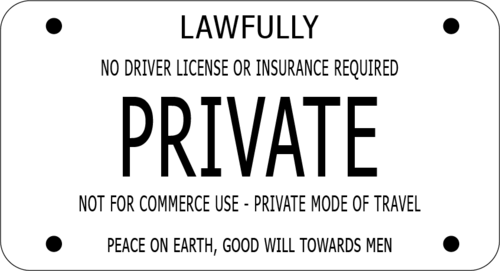
Sovereign citizens are individuals who believe that they are not subject to any statutes and laws established by the government. This belief is rooted in various interpretations of law and government that are often based on a combination of conspiracy theories, pseudo-legal arguments, and selective readings of historical documents. The sovereign citizen movement has been associated with a variety of activities that challenge the legitimacy of government authority, including tax evasion, refusal to comply with traffic laws, and the filing of frivolous lawsuits.
Historical Background
The sovereign citizen movement traces its origins back to the Posse Comitatus movement of the 1970s, which advocated for local control and rejected federal authority. This movement laid the groundwork for modern sovereign citizen beliefs. Over time, the movement evolved, incorporating various legal and constitutional arguments to justify its stance. The rise of the internet in the late 20th and early 21st centuries facilitated the spread of sovereign citizen ideas, allowing for greater coordination and dissemination of their beliefs.
Beliefs and Practices
Sovereign citizens typically hold a number of core beliefs, including:
- Government Illegitimacy: They often claim that the current government is illegitimate and that they are not bound by its laws. They may argue that the government was secretly replaced by a corporation or that it operates under maritime or admiralty law.
- Strawman Theory: A common belief is that each person has a separate legal entity or "strawman" that the government controls. Sovereign citizens believe they can separate themselves from this "strawman" and thus avoid legal obligations.
- Common Law: Many adherents assert that they are subject only to "common law" and reject statutory law, which they view as illegitimate. This belief often leads to conflicts with law enforcement and the judicial system.
Legal and Social Impact
Sovereign citizens are known for engaging in various activities that challenge legal norms and create administrative burdens for government agencies. These activities include:
- Paper Terrorism: The filing of numerous, often baseless, legal documents and liens against public officials. This tactic is intended to harass and intimidate those officials.
- Tax Evasion: Many sovereign citizens refuse to pay taxes, arguing that they are not subject to federal or state tax laws.
- Traffic Violations: Sovereign citizens frequently refuse to obtain driver’s licenses, register their vehicles, or comply with traffic laws, asserting that such requirements infringe on their rights.
Law Enforcement and Government Response
Law enforcement agencies and the judiciary have taken various measures to address the challenges posed by the sovereign citizen movement. Training programs have been developed to help officers recognize and effectively deal with sovereign citizen tactics. Additionally, courts have imposed sanctions and penalties on individuals who engage in frivolous legal filings or other disruptive behaviors. Despite these efforts, the sovereign citizen movement remains a persistent and evolving challenge for authorities.
Conclusion
The sovereign citizen movement represents a significant and ongoing challenge to the rule of law in many countries, particularly in the United States. While the movement is diverse and its adherents hold a variety of beliefs, their common rejection of governmental authority poses both legal and practical difficulties. Efforts to counteract the movement's impact continue to evolve as authorities seek to balance the rights of individuals with the need to maintain public order and the integrity of the legal system.
| Rubrique | Titre | Thème | Date de publication |
|---|---|---|---|
| Rubrique | Titre | Thème | Date de publication |




















